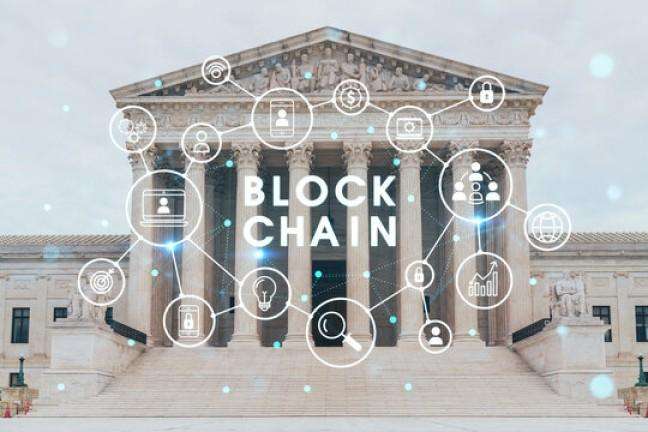In the fast-evolving world of technology, blockchain has emerged as one of the most transformative innovations of the 21st century. From cryptocurrency to supply chain management, blockchain has revolutionized various industries. One particular concept gaining traction is “agence blockchain.” While it may sound technical, it simply refers to a specific application of blockchain in the context of business agencies, offering decentralized solutions that can streamline operations, ensure transparency, and enhance security. In this article, I will explore what agence blockchain is, its benefits, real-world applications, and the potential it holds for the future.
Table of Contents
What is Agence Blockchain?
At its core, agence blockchain is the use of blockchain technology by businesses, specifically agencies, to carry out transactions, manage data, and provide services in a more efficient and secure manner. Blockchain, a decentralized ledger system, ensures that all transactions or data exchanges are recorded transparently and immutably across a network of computers. This structure eliminates the need for intermediaries, reducing costs and increasing trust between parties.
Unlike traditional databases that rely on a central authority, a blockchain is distributed, meaning no single entity controls it. This opens the door for decentralized applications (DApps), smart contracts, and more, allowing businesses to operate more autonomously while minimizing risks associated with fraud, data breaches, and human error.
Why Do Agencies Use Blockchain?
Agencies—be it marketing, advertising, or even government organizations—are increasingly adopting blockchain for its numerous advantages. These include:
- Enhanced Transparency: Blockchain allows agencies to track transactions or processes in a transparent way. Every action is recorded and can be traced back to its source, making it almost impossible to alter or manipulate data.
- Improved Security: Blockchain’s encryption methods ensure that data is protected from unauthorized access. The decentralized nature of blockchain also makes it harder for hackers to corrupt or tamper with data.
- Efficiency: By eliminating intermediaries, blockchain can help streamline processes. Transactions and contracts can be automated through smart contracts, reducing the need for manual interventions.
- Cost-Effective: Agencies save costs by cutting out the middlemen involved in traditional business transactions. Blockchain enables direct interactions between parties, reducing fees and administrative costs.
- Trustless Transactions: With blockchain, agencies can interact with unknown parties and still feel confident that the terms of the transaction will be honored. This builds trust without relying on a third party to enforce agreements.
Key Features of Agence Blockchain
- Decentralization: One of the most fundamental characteristics of blockchain is that it does not rely on a central authority. This decentralization reduces the risks of data manipulation or single points of failure.
- Smart Contracts: These are self-executing contracts where the terms of the agreement are written directly into code. Once the predefined conditions are met, the contract is automatically executed. For agencies, this can mean automating service agreements, payment processes, or even employment contracts.
- Immutable Data: Once data is added to a blockchain, it is almost impossible to alter. This immutability ensures the integrity of the information recorded, making it a reliable source of truth for agencies.
- Tokenization: Blockchain allows for the creation of digital tokens, which can represent various assets, be it currency, real estate, or even services. For agencies, tokenization can enable new business models, such as fractional ownership or instant payment systems.
- Interoperability: Modern blockchain networks are designed to work together. This means agencies using different blockchain platforms can exchange data and assets seamlessly, improving collaboration and innovation across industries.
Agence Blockchain in Practice: Real-World Applications
While the theory behind agence blockchain is intriguing, the true potential lies in its application. Let’s look at some real-world examples to understand how agencies are leveraging this technology:
1. Blockchain in Advertising
In the advertising industry, blockchain can solve several challenges, including ad fraud, lack of transparency, and inefficiencies in the payment process. Agence blockchain in advertising can create a more transparent supply chain, where every interaction is logged and verified on the blockchain.
For instance, advertisers and publishers can use blockchain to verify the actual viewership of an ad, ensuring that advertisers only pay for real views, not fraudulent ones. Blockchain-based platforms like MadHive and Brave are already making strides in this area by offering more transparent, efficient, and secure solutions for digital advertising.
2. Blockchain in Recruitment Agencies
Recruitment agencies are another sector where blockchain can bring transformative changes. By using blockchain to record candidate credentials, agencies can create tamper-proof digital resumes that employers can trust. This eliminates the need for lengthy background checks, as all the data is securely stored and easily accessible.
For example, companies like APPII use blockchain to verify qualifications and work experience. When an applicant submits their credentials, the blockchain ledger ensures their accuracy, making recruitment faster and more reliable.
3. Blockchain in Real Estate Agencies
Real estate transactions are often complex, involving multiple parties, documents, and intermediaries. Blockchain can streamline the process by providing a decentralized, secure, and transparent platform for recording property ownership and transaction history.
For instance, Propy is a platform that uses blockchain for real estate transactions, allowing buyers and sellers to complete property deals more quickly and with less paperwork. Through blockchain, agencies can verify ownership, track property history, and automate escrow services, making the entire process more efficient.
Comparison Table: Traditional Systems vs. Agence Blockchain Solutions
| Aspect | Traditional System | Agence Blockchain System |
|---|---|---|
| Transparency | Limited, dependent on intermediaries | Fully transparent, all transactions recorded |
| Security | Vulnerable to data breaches and fraud | Highly secure with encrypted and immutable data |
| Efficiency | Involves multiple parties and processes | Automated, with smart contracts for faster transactions |
| Cost | High due to intermediaries and paperwork | Lower due to reduced reliance on middlemen |
| Trust | Relying on trusted intermediaries | Trustless, based on smart contracts and decentralized ledger |
Agence Blockchain and Smart Contracts: A Closer Look
Smart contracts are one of the most promising aspects of blockchain, and their impact on agencies cannot be overstated. These self-executing contracts eliminate the need for intermediaries like lawyers, agents, or banks. In essence, they can automate processes and ensure compliance without manual intervention.
For example, imagine an agency enters into a contract with a vendor for a marketing campaign. Using blockchain, the terms of the agreement—such as budget, timelines, and deliverables—can be encoded into a smart contract. When the vendor delivers the agreed-upon services, the smart contract automatically triggers payment.
Let’s break this down with a simple example:
- Scenario: Agency X enters into a smart contract with Vendor Y for a $10,000 marketing campaign.
- Conditions: Vendor Y must deliver the campaign in 30 days. Once the deliverables are submitted, Agency X will release the payment.
With blockchain, once Vendor Y submits the campaign, the smart contract is automatically triggered, and the $10,000 is paid to Vendor Y. There’s no need for an agent to verify the work or facilitate payment.
This eliminates delays and ensures that all parties adhere to the terms. It’s fast, secure, and minimizes the chances of disputes.
The Future of Agence Blockchain
Looking ahead, the potential of agence blockchain seems limitless. The more industries realize the benefits of decentralization, transparency, and security, the more widespread adoption will become. While we’ve only scratched the surface of what blockchain can offer, the growing interest in decentralized applications and the continued development of blockchain platforms suggest that the future will be shaped by this technology.
The next step for agencies will likely involve full integration of blockchain into their operations. From automating administrative tasks to offering new, blockchain-based services, the future of agence blockchain promises significant shifts in how businesses operate.
Final Thoughts
In conclusion, agence blockchain is not just a buzzword or a fleeting trend—it’s a robust and transformative technology that is already proving its worth in various industries. By offering enhanced security, transparency, efficiency, and cost savings, blockchain provides agencies with a powerful tool to navigate the complexities of the modern business world. As more agencies adopt blockchain solutions, we can expect to see even greater innovation and disruption across industries. The key to unlocking blockchain’s full potential lies in embracing its capabilities and exploring its many applications. With time, agence blockchain will undoubtedly become a critical component of business strategy.





